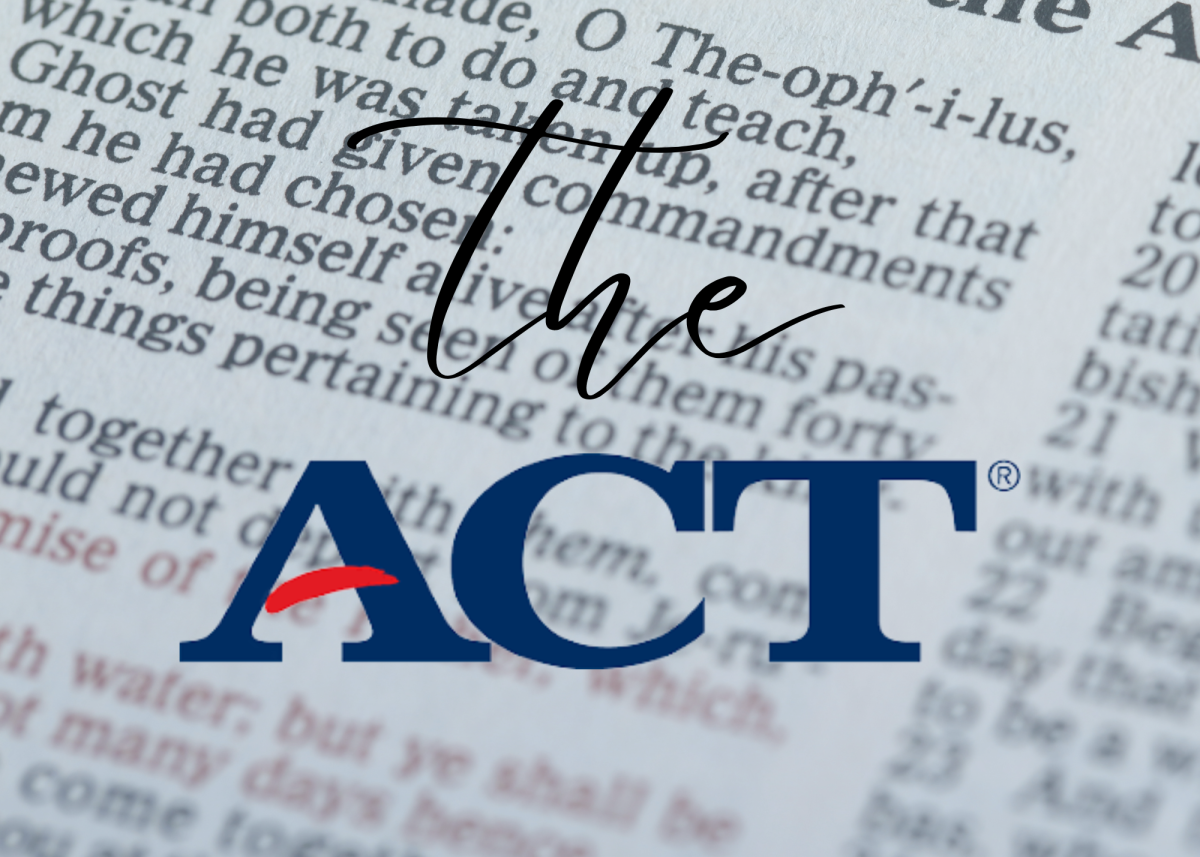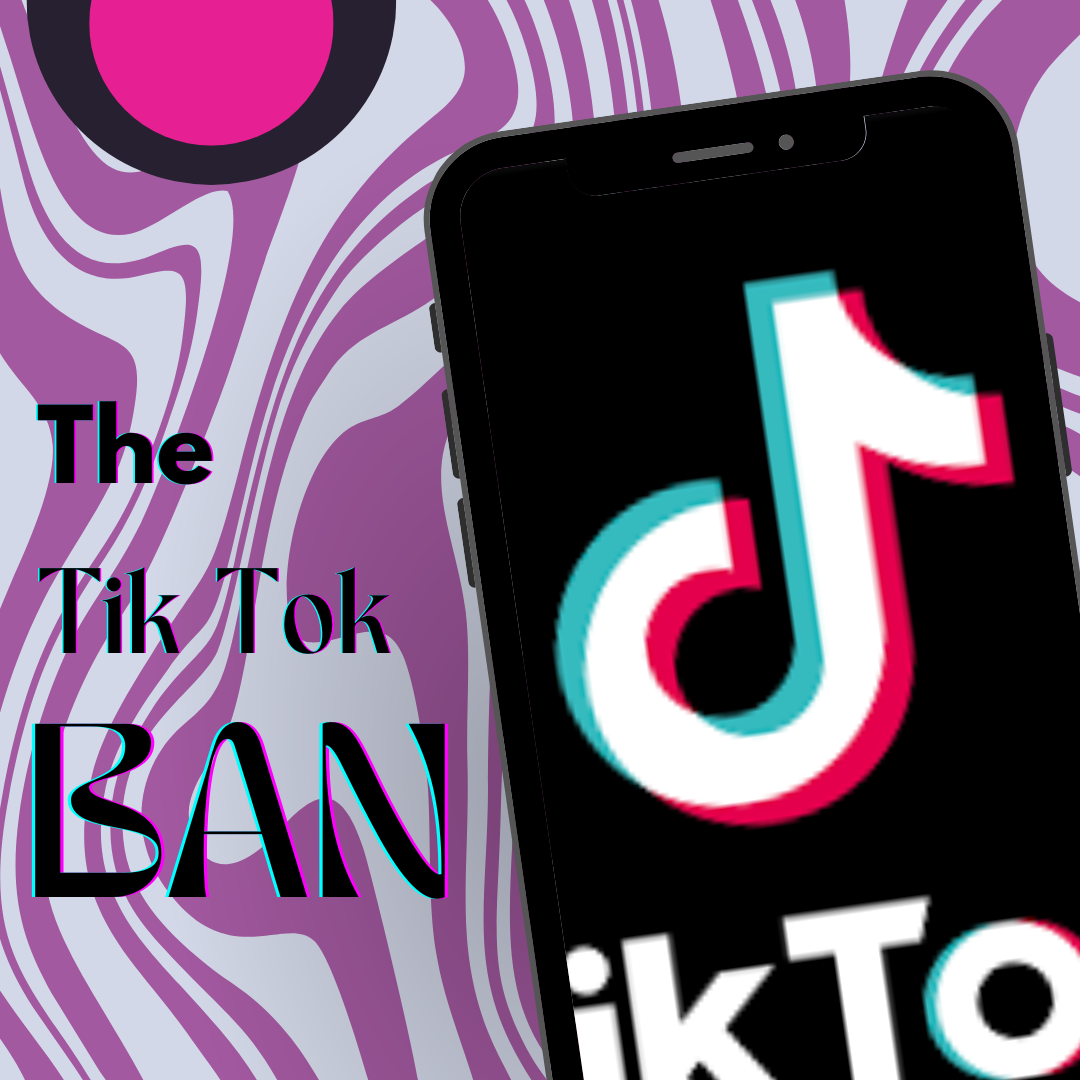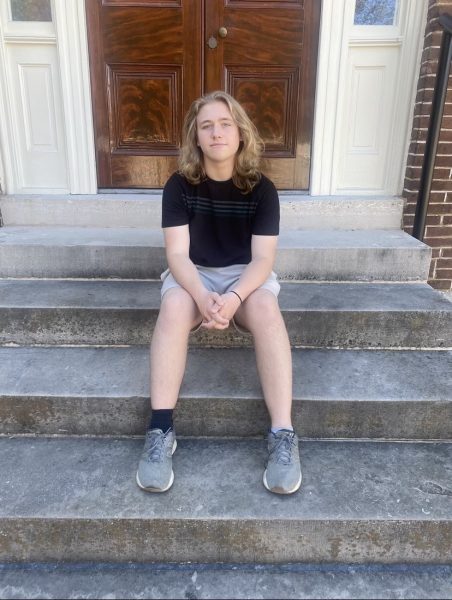This year’s senior class will, very shortly, be registering to vote and making their voices heard in the multitude of upcoming 2024 elections. On March 5, 2024, Tennessee will hold its primary election for the presidency with the sixtieth presidential race scheduled to be decided on Nov. 5, 2024. Despite the importance of the upcoming voting season, when polled 83 % of seniors said they had little to no knowledge of the presidential candidates, scoring themselves a one or two when asked to assign said knowledge on a value out of five. In remedy, here are six profiles representing a sample of those bidding for the nation’s highest executive office.
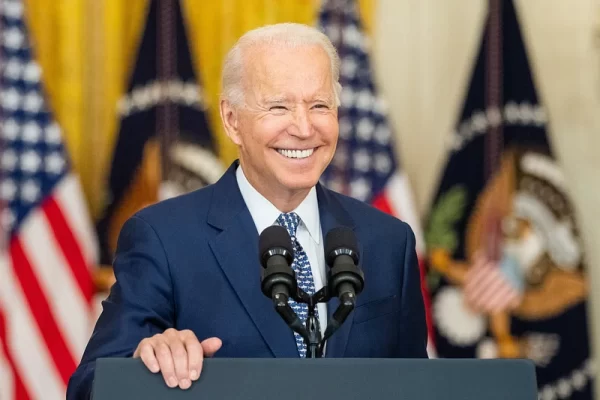
Starting with the Democrats, Joseph R. Biden, 80, is the presidential incumbent seeking reelection. In the past he served as a senator for Delaware in the 93rd to 111th U.S. Congresses from 1973 until 2009 when he began his service as the 47th vice president under former president Barack Obama. Over his 50-year political career Biden could be described as a moderate conservative and in recent years has been an embodiment of center-left politics.
His platform for his 2024 campaign has been to “defend democracy” and to advocate against “…cutting social security…. dictating healthcare decisions…. banning books…” per his official campaign video. In his Feb. 7 State of the Union address he called for policing reforms.
“Let’s come together and finish the job on the police reform.”
In the same address he also voiced support for healthcare reform, especially in regard to making essential drugs like insulin more affordable.
“Every day, millions need insulin to control their diabetes so they can stay alive. Insulin has been around for 100 years. It costs drug companies just $10 a vial to make… Let’s cap the cost of insulin at $35 a month for every American who needs it.”
His campaign has raised more than 72 million dollars as of July this year and is considered to be the front-runner for the democratic nomination.
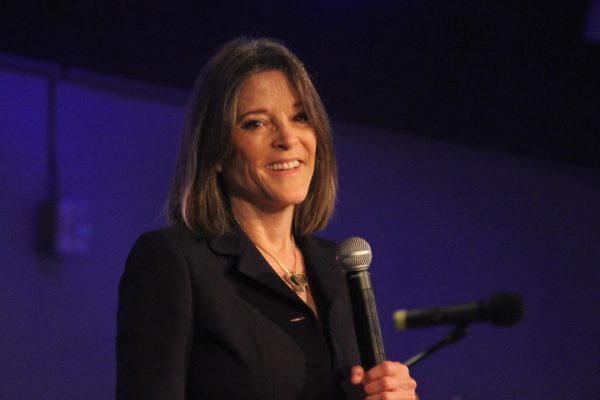
Marianne Williamson, 71, is a New York Times best-selling author and spiritual leader. She has been involved in political activism and philanthropy since the 1980s. She cofounded Project Angel Food in 1989 to supply meals to home-bound AIDs patients and currently sits on the board of RESULTs, a non-profit dedicated to finding long-term solutions to poverty.
This is her second presidential bid, the first being in 2020. Her platform represents a progressive sect of the democratic party.
“My motivations are a moral commitment to the tenets of liberty espoused in the Declaration of Independence and the Gettysburg Address…” said Williamson in a February press release teasing her candidacy.
Her platform includes support for a variety of hot button economic and social issues with a focus on bringing America up to speed with the rest of the world saying in an ABC interview on March of this year.
“…we could have universal healthcare like in every other advanced democracy, we could have free child-care like in every other advanced democracy, we could have family and sick pay like in every other advanced democracy, we could have tuition free college and tech school, we could have guaranteed living wage like in every other advanced democracy…”
As of June, of this year, her campaign has raised $1.1 million in donations.
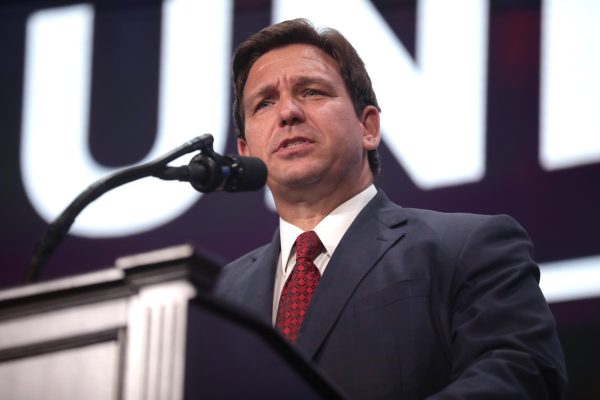
Moving on to the Republicans, Ronald Dion DeSantis, 45, is a United States naval veteran of 15 years, being active duty from 2004 until 2010 and taking a role in the Navy Reserve until 2019. During his time in the service, he was awarded the Bronze Star Medal. DeSantis is also a former member of congress, having served in the 113tth through 115th congresses from 2013 until 2018. He studied law at Harvard and practiced until 2012.
His political ideal is to lead the “Great American Comeback,” according to his official campaign website, rondesantis.com. This includes a focus on the southern border, pro-life policy and institutional reform.
“If the cartels are cutting through the border wall, trying to run product into this country, they’re going to end up stone cold dead as a result of that bad decision,” said DeSantis in an official statement in June of this year on his stance towards the situation at the border.
On abortion, DeSantis stated the following at the first Republican primary debate: “I was proud to sign the heartbeat bill…what the democrats are trying to do on this issue is wrong, to allow abortion all the way up to the moment of birth…we are not gonna allow abortion all the way up till birth and we will hold them accountable for their extremism…I will support the cause of life as governor and as president.”
As the forty-sixth governor of Florida DeSantis gained national attention for the Parental Rights in Education bill, which critics call the “don’t say gay bill.” He wants to incur similar institutional reform as president.
“When revered institutions like our own military are more concerned with matters not central to the mission — from global warming to gender ideology and pronouns, morale declines and recruiting suffers. We need to eliminate these distractions and get focused on the core mission,” stated DeSantis in an official campaign announcement on rondesantis.com.
He made clear his intentions for institutional changes to education on the federal level, too.
“We need education in this country, not indoctrination in this country…in Florida we eliminated critical race theory from our K-12 schools, we eliminated gender ideology from our K-12 schools, and we have elevated the importance of American civics and teaching our kids about the Constitution.],” said DeSantis during the first GOP primary debate.
His campaign has raised $20.1 million as of June of this year.
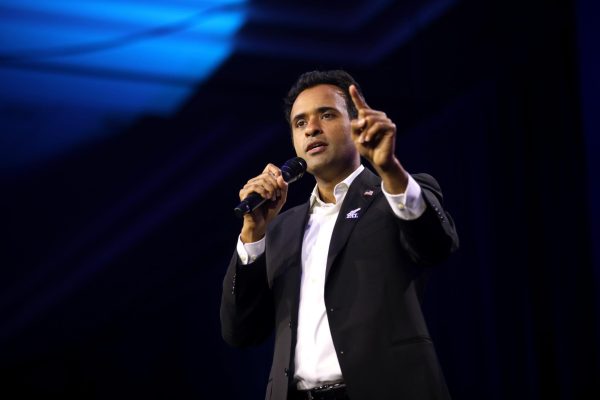
Vivek Ganapathy Ramaswamy, 38, was born in Cincinati, Ohio to Indian immigrant parents. He is the founder of Roivant, a biotech company. He earned a bachelor’s degree in biology from Harvard and a J.D. from Yale.
Ramaswamy wants to dismantle what he calls “managerial bureaucracy.” He wants to focus on American identity and raise the voting age.
This includes shutting down “toxic government agencies” like the “department of education, FBI, and IRS,” ending “federal employee unions,” and removing the “pro-lazy remote work option” for federal employees as stated on his official website vivek2024.com.
According to the same source, Ramaswamy aims to revive national identity via use of “military, including drones, to secure our southern border,” and protect minors by banning “addictive social media under age 16 & gender confusion ‘care’ for minors.”
Ramaswamy also wishes to incur electoral, especial voting, reform in supporting a raise in the voting age to 25 and only allowing 18-year-olds to vote if they have enlisted in the military or emergency services.
“Absence of national pride is a serious threat to our country,” he said, arguing his proposal, “can create a sense of shared purpose and responsibility amongst young Americans to become educated citizens,” as stated in his official Iowa campaign release earlier this year.
As of June, Ramaswamy has raised $9 million in campaign funds.
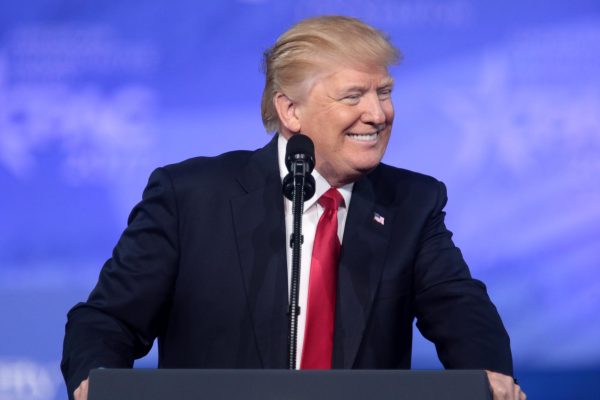
Donald J. Trump, 77, is a real estate mogul and former reality TV star in addition to serving as the 45th president of the United States from 2016 until 2020. If he won this election, he would be the second president ever to have non-consecutive terms. In his 2024 bid for the presidency, he is pushing concerns for election integrity and the economy to center stage.
Following Trump’s 2020 defeat and theories of rampant election fraud, he has made election integrity and honesty a centerpiece of his campaign.
On his official campaign website, donaldjtrump.com, he promises to achieve this via “banning unsecure drop boxes and ballot harvesting. State and local officials cannot be permitted to make illegal and unconstitutional changes to election procedures without the required approvals by the state legislatures. Very importantly, we must ban private money from pouring into local election offices.”
Trump has decried the Biden economy and promises to do things diametrically different.
“On day one I will reverse the disastrous effects of Biden’s economy and begin to rebuild the greatest economy in the history of the world which is what we had. I will unleash energy independence and we will bring the price of gasoline down immediately by ending Biden’s foolish war on American energy, and I wanna drill. I wanna get that liquid gold we have more than anybody and we’re gonna get it and we’re gonna bring those prices way down…”
As of June of this year, Trump’s campaign had raised about $15 million in donations.

The libertarian party represents America’s third largest political party. Per the numbers, the frontrunner is Lars Mapstead, 54, a businessman who made his money in various internet startups. His campaign is focused on issues of electoral and economic reform.
He wants to achieve “Ballot access reform in all 50 states, enabling us to choose the candidate that we believe will best represent us, not just the candidate picked by the two parties…” elimination of “…the federal law preventing multi-member districts and empower Americans to have their vote counted instead of winner take all elections…” and election security via the allocation of “…federal funding in elections to counting only votes received by poll closing on election day, independent observers, and transparent counting processes to protect the integrity of our elections,” according to lars24.com, his official campaign website.
From the same source, the following is stated on his economic goals, “A national consumption tax eliminates the income tax, closes the loopholes, and eliminates the IRS so everyone pays the same tax… Fair FICA will cut the self-employment tax in half to ensure contractors, creators, uber drivers, and more aren’t double-taxed simply because they are self-employed.”
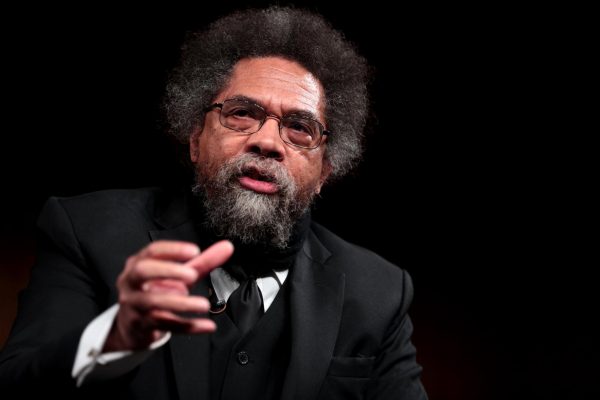
The Green Party is the second largest third party. Their frontrunner is Dr. Cornel West, 70, an author, philosopher, political activist and public intellectual. He received a PHD in philosophy from Princeton in 1980, becoming the first African American to do so. His campaign focuses on environmental and democratic issues.
On the environment he says we need to fight “back against the escalating ecological catastrophe by targeting the corporate greed of fossil fuel companies and resurrecting the Green New Deal. Shifting from extraction and emission to regenerative and renewable energy. Eliminating the environmental racism that disproportionately damages the life chances of poor people, especially poor people of color here and abroad. The future of life on this planet depends on this fundamental shift!” as stated on his official campaign website
According to the same source, we must unleash democracy via, “Massive investments in satisfying the social needs of everyday people. Medicare for all including humane mental healthcare, decriminalization of drugs, and creation of humane rehabilitation sites. Decent housing for all, quality education for all, free college tuition for all, and jobs with living wages for all. Abolishing poverty and houselessness. Targeting the vicious legacy of white supremacy by ending mass incarceration, demilitarizing policing (abolishing Cop-Cities), and promoting reparations for past unjust treatment of Black people. Prioritizing the empowerment of indigenous peoples. Protecting the reproductive rights of women and ending all forms of patriarchy. Securing the rights of LGBTQ+ and Trans-Peoples. Treating every migrant and asylum seeker with dignity and implementing fundamental changes in immigration policies. Public financing of elections with ranked-choice voting, eliminating the Electoral College and a national holiday for voting. Democratizing unaccountable monopolies and oligopolies with workers’ control.”
The 2024 candidate pool has some familiar faces, newcomers, and a degree of diverse opinions in-between. Deciding who to vote for is an extremely important decision, and not to be taken lightly or made without research. It is the hope that all under-informed seniors may use this article as a jumping off point for correctly fulfilling their civic duty.



